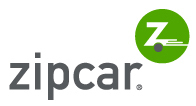Zipcar Partners with City of Chicago to Provide Integrated Car and Fleet Sharing Services for Smarter, Streamlined Transportation Alternatives
 |
CHICAGO--March 3, 2011: Zipcar, Inc., the world's leading car sharing network, today announced a partnership with the City of Chicago to provide an integrated fleet and car sharing solution to city agencies in an effort to improve efficiency and promote sustainability.
The City of Chicago is the first in the country to integrate both FastFleet, the fleet sharing technology service from Zipcar, and Z4B (Zipcar4Business), Zipcar's business transportation solution. According to the city's projections, the integrated program could save Chicago hundreds of thousands of dollars in transportation costs over the next several years.
While both transportation options rely on Zipcar's technology, The FastFleet technology will let the city continue to use its own vehicles, while Z4B opens up the opportunity to use Zipcar-owned vehicles as well. Zipcar provides this integrated program with both services to allow the city more options and flexibility--with the ability to choose from one of its own shared vehicles or seamlessly select from the hundreds of Zipcars within the Chicago area.
With FastFleet, Chicago's fleet operators will be able to implement the current technology and experience used to operate Zipcar's consumer fleet into existing city fleet vehicles. FastFleet's self-service online reservation and secure vehicle access system enables fleet operators to reduce the number of vehicles needed in the fleet without reducing availability and mobility for employees.
When using Z4B, government officials and employees will be able to reserve a Zipcar vehicle as they need it, with the city paying only for the time the car is actually used. This component of the integrated program will further reduce the number of costly fleet vehicles needed by the city, improve transportation efficiency, and reduce out-of-pocket expenses.
"In this new era of efficiency we strive for cost reductions, lean operations and sustainable options without sacrificing services Chicagoans rely on every day," said Mayor Daley. "The partnership with the City and Zipcar is a tremendous step in achieving this goal and is another example of our commitment to incorporating environmentally-friendly practices into government operations."
"At a time when city governments are being asked to do more with less, Zipcar is making it easy for them to quickly and easily reduce costs while still meeting the needs of their employees and citizens," said Scott Griffith, Zipcar's chairman and CEO. "We applaud Mayor Daley and the City of Chicago for their commitment to developing smart government solutions to complex transportation challenges. This partnership will help the city operate its fleet more efficiently, while providing sustainable transportation alternatives for employees and saving money for taxpayers."
Jonathan Gonsky, general manager of Zipcar Chicago, noted that by this spring, Zipcar anticipates making over 500 Zipcars available in Chicago for citywide government use including 75 cars stationed downtown.
The trend has already been adopted with similar initiatives in New York City and Washington D.C. In October 2010, New York City Mayor Michael Bloomberg announced that Zipcar would be providing car sharing memberships to Department of Transportation (DOT) employees as a part of a pilot program. In 2009, Washington D.C. became the first city to use FastFleet, allowing fleet operators to eliminate cars, save money and reduce emissions. D.C. officials estimate that they save more than $1 million per year using the technology.
The City of Chicago selected Zipcar as its fleet provider through a competitive bidding process.
According to a Frost & Sullivan report, depending on total distance driven, a car-sharing program can save members up to 70 percent of their total transportation costs. In addition to cost benefits, the same report found that on average in North America, each car shared replaces 15 cars on the road. Because vehicle miles traveled per driver is reduced almost 50 percent when car owners switch to car sharing, the change reduces CO2 emissions and resulted in 482,000 fewer tons emitted in 2009 alone.
<SOURCE Zipcar


